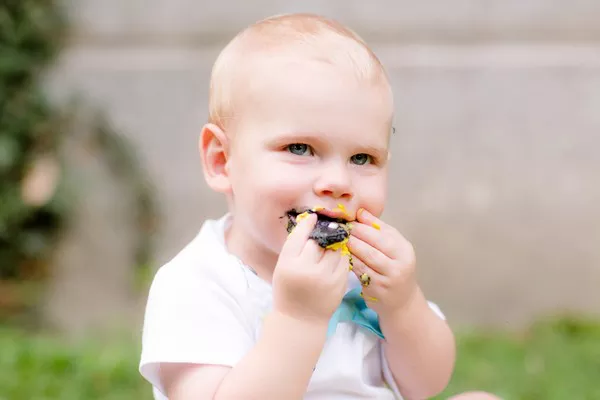In the exciting journey of parenthood, it’s essential to stay informed about your baby’s developmental milestones. As your little one reaches the age of 2 and a half months, you may be wondering what to expect in terms of their growth and development. In this comprehensive guide, we will explore the key developmental milestones for a 2.5-month-old baby and offer valuable parenting tips to ensure you’re providing the best care for your infant.
1. Motor Skills:
Lifting Their Head: By 2 and a half months, most babies can lift their heads while lying on their tummy. This is an important step in building neck and upper body strength. Encourage tummy time to help your baby develop these essential muscles.
Arm and Leg Movements: Your baby’s limbs are becoming more coordinated. You’ll notice your little one waving their arms and kicking their legs in excitement. These movements are a positive sign of motor development.
Hand-to-Mouth Reflex: At this stage, babies often discover their hands and may start bringing them to their mouths. This is a healthy and instinctual behavior as they explore the world around them.
Tracking Objects: Your baby should be able to follow objects with their eyes and show a growing interest in bright and contrasting colors.
2. Social and Emotional Development:
Smiling: Around 2.5 months, babies typically start to produce more social smiles. These genuine smiles are a heartwarming sign that your baby is connecting with you and responding to your interactions.
Cooing and Babbling: Your baby may begin to make cooing sounds, which is a precursor to later language development. Engage in conversations with your baby, and they may try to mimic the sounds you make.
Recognizing Familiar Faces: By this age, your baby should start to recognize your face and the faces of other close family members. They may display excitement when they see familiar people.
3. Feeding and Sleeping:
Feeding Patterns: Your baby’s feeding patterns will likely still be frequent at 2.5 months. They may feed every 2-3 hours. Continue to breastfeed or formula-feed on demand, following your baby’s cues for hunger.
Sleeping Habits: At this age, your baby is still developing a sleep schedule. Expect your baby to sleep for longer stretches at night but still wake up for nighttime feedings. It’s essential to provide a quiet, soothing environment for better sleep quality.
Growth Spurt: Around 2.5 months, many babies go through a growth spurt, which may lead to increased hunger and more frequent feedings. Be prepared to adapt to your baby’s evolving needs during this phase.
4. Cognitive Development:
Exploration: Your baby’s growing curiosity will drive them to explore objects and their surroundings. Provide safe and age-appropriate toys to encourage this exploration and stimulate their cognitive development.
Visual Tracking: At this stage, babies are improving their visual tracking abilities, which means they can follow moving objects with their eyes. This is a critical skill that helps with their cognitive and visual development.
Memory and Recognition: Your baby’s memory and recognition abilities are also developing. They may show a preference for familiar toys or objects and may become more engaged with interactive toys.
5. Communication Skills:
Responsive Interaction: Your baby is now more responsive to your voice and facial expressions. Talk to them frequently, using a soothing and affectionate tone. This interaction supports language development.
Understanding Cues: Pay attention to your baby’s cues. Crying can signify different needs – hunger, discomfort, or tiredness. Learning to interpret these cues will help you respond promptly and provide the best care.
Reading Together: It’s never too early to start reading to your baby. Even at 2.5 months, reading aloud can stimulate their brain, promote bonding, and set the stage for a love of books in the future.
In conclusion, your 2.5-month-old baby is on a remarkable journey of growth and development. Remember that every baby is unique, and developmental milestones can vary. The key is to be attentive, responsive, and nurturing as your baby explores the world. As a parent, you play a vital role in supporting their development. Keep in mind that this is an exciting time of discovery for both you and your little one. Enjoy every moment and cherish these precious early stages of your child’s life.


